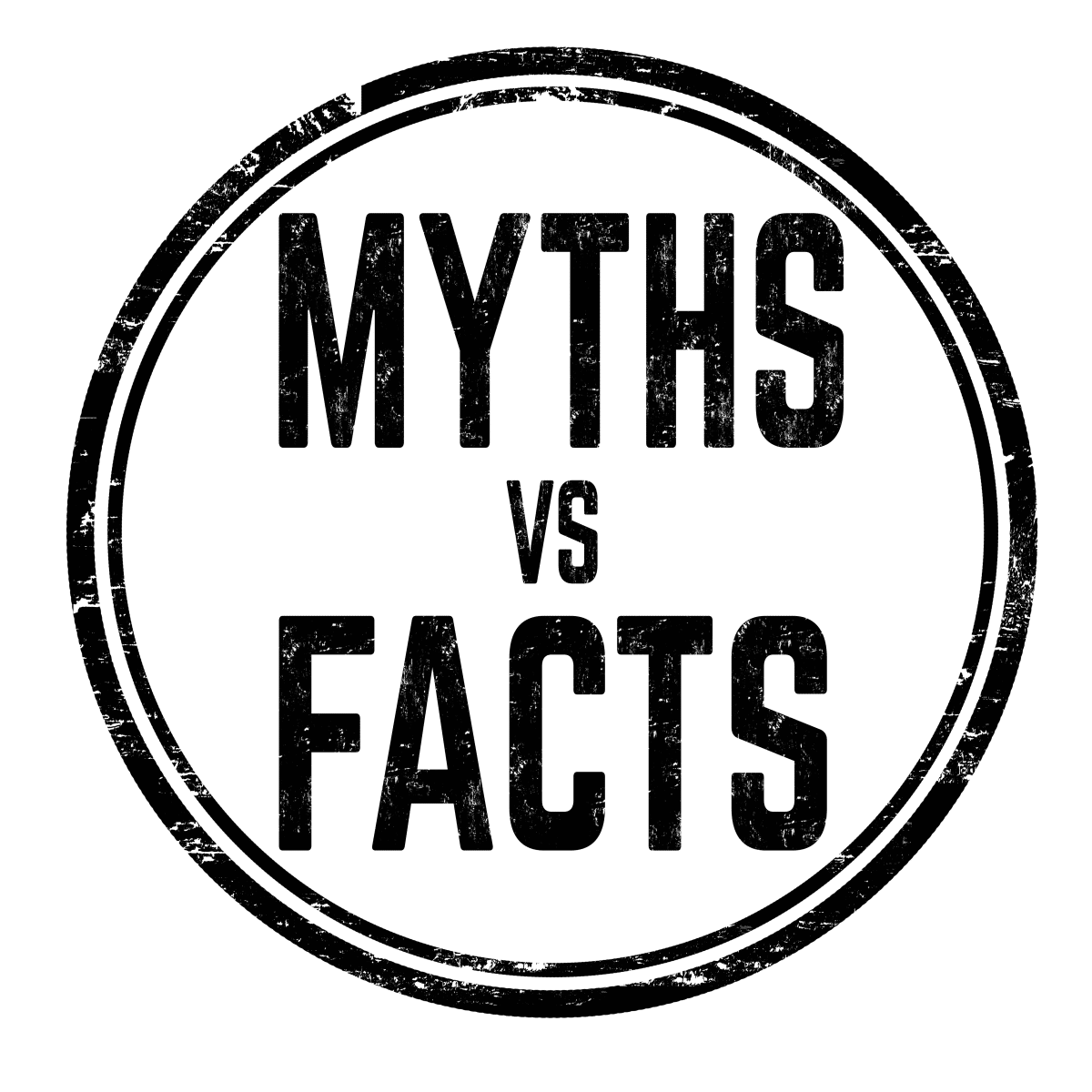If you’ve ever tried to research the best way to improve your athletic performance, you’ve likely come across a lot of confusing articles, opinions and information in the process. Some people say you need carbohydrates to thrive, while others say they’ll increase your body fat percentage. Some people claim that one diet worked wonders on their body, while others say the opposite eating habits did the same…
So, what’s the truth?
Well, the truth is that health, fitness and nutrition is never black and white. More importantly, anyone looking for dietary advice should always seek the help of an accredited and experienced professional. Here at Fuel Your Life, our team of Accredited Practising Dietitians are passionate about spreading positive, realistic and accurate information about health and nutrition. Today, we’re going to do just that by setting the record straight about a few commonly misunderstood areas.
Here are a few common myths about exercise performance you should look out for…
Carbohydrates
Myth: Eating a high carbohydrate diet will make you gain weight and negatively impact performance.
Truth: Carbohydrates have a bad reputation, but not for any good reason. While not every athlete will thrive off the same high carbohydrate diet, it is true that eating the right carbohydrates in the right amounts is integral to providing your body with the energy it needs.
It’s important to understand that there are two different types of carbohydrates; refined and unrefined. Unrefined carbs are usually the major players in an athlete’s diet, as they are nutrient-dense and offer a great amount of slow-acting energy for long or intense training sessions. Sources of unrefined carbohydrates include sweet potatoes, bananas, quinoa, oats, wholegrain pasta and bread and brown rice. Because these foods are a great source of energy, it’s quite common for Sports Dietitians to recommend their clients eat a diet rich in unrefined carbohydrates, depending on their specific goals and training.
Refined carbohydrates, on the other hand, typically offer less nutrients, fibre and minerals and are often higher in calories from added sugars than their unrefined counterparts. Examples of refined carbohydrates include white bread, biscuits, pastries and lollies. These sources of carbohydrates are often high in glycaemic load and spike your blood sugar levels quickly after eating rather than allowing for a slow-release of energy. However, this doesn’t mean they don’t have their place in an athlete’s diet. A dietitian is more likely to recommend refined carbohydrates on competition days to help replenish energy stores as quickly as possible.
It’s important to understand that every athlete has different nutritional needs depending on a range of factors, such as the type of training they do, their performance goals and their body composition. This is why it is incredibly important to find a reputable Accredited Sports Dietitian who can assess your needs and help plan a diet that works best for you!
Sleep
Myth: Sleep is less important to your performance than training and diet.
Truth: Sleep is something most of us love but few of us actually get enough of. While you may think that waking up early to get in an extra training session is better for you, depriving your body and mind of enough rest each night can be incredibly detrimental to your overall health and athletic performance. To put it simply, sleep is the body’s way of recovering both physically and mentally. While everyone, athlete or not, needs enough rest each night to function at their best throughout the day, this is especially true for individuals who exert a lot of energy through training and competing.
The benefits of sleep on the body are extensive. When you don’t get enough rest, your body has less time to regenerate cells and repair muscles after training sessions or events. This can not only make you feel sore and fatigued, but can also make you more susceptible to injury and dampen your immune system. A recipe for performance disaster!
Sufficient sleep also improves your reaction time and decision-making abilities. If you’re a professional athlete, this is particularly important as it will impact how well you play and reduce the amount of mental errors you’re likely to make throughout a game.
The amount of sleep you need will vary depending on your daily routine and lifestyle, but generally an athlete should be aiming to get at least 7-9 hours each night. This is something your exercise performance dietitian can help you with, as they can assess your individual needs and goals and determine how much sleep is best for you.
Vitamins and supplements
Myth: Taking supplements and vitamins is essential if you want to be fit, healthy and successful as an athlete.
Truth: While vitamins and other supplements can offer amazing benefits to some individuals, they aren’t always necessary. To begin with, supplements should never be used as a substitute for a healthy, well-planned diet. Eating a range of nutritious wholefoods such fruits, vegetables and wholegrains provides most people with the adequate vitamins and minerals they need to function optimally.
For athletes, however, certain supplements might be necessary depending on their training load and increased micronutrient needs. The correct usage of certain supplements can also help to improve sporting performance. An Accredited Sports Dietitian will be able to give you guidance on what is recommended for you as an induvial depending based what your goals happen to be.
Some common supplements used by athletes include protein powders, fish oils, creatine and BCAAs. Each of these supplements play a specific role in the functioning of the human body and should only be taken when advised by an Accredited Sports Dietitian or medical professional. While supplements should never be used to replace a healthy diet, they can be very beneficial when an athlete is not able to meet their nutritional needs, as can often happen whilst travelling or during periods of heavy training.
Caffeine and sports drinks
Myth: Caffeine and sports drinks are needed to fuel a workout.
Truth: Knowing what you’re consuming is incredibly important when it comes to sports drinks. While these beverages often claim to provide a good boost of energy and hydration pre- or post-workout, in many cases they can fall short on their promises and leave you worse off. Sports (electrolyte) drinks are often overused, with plain water being adequate enough for hydration purposes. An Accredited Sports Dietitian may recommend these drinks during periods of heavy training or during competition as they not only provide electrolytes from a hydration perspective but also help to provide easily digestible carbohydrates to assist with meeting fuelling requirements.
As for caffeine, athletes aren’t immune to the very-common need for a daily coffee. The correct dosage of caffeine has been shown to improve performance but it’s important to discuss what is best for your needs with an Accredited Sports Dietitian as using caffeine incorrectly can actually hinder your performance. Negative side-effects of too much or incorrect usage of caffeine can include gastrointestinal upset, disturbed sleep and anxiety.
Magic diets
Myth: There is one ‘magic diet’ to make you perform better.
Truth: Whether it’s a friend, family member, co-worker or celebrity on TV, we’ve all heard someone promote a certain diet as ‘life-changing’. Unfortunately, there isn’t a one-size-fits-all diet that works for every human being, and especially not for the incredibly varied nutritional needs of athletes.
Let’s take a look at a few of the most popular diets currently being talked about…
Keto: A ketogenic diet is a high fat, low carbohydrate and moderate protein diet that is designed to force the body to enter a state of ‘ketosis’. This metabolic state helps the body to burn fat for fuel rather than carbohydrates.
Vegan: A vegan diet is one that does not include any form of animal products, such as dairy, meat, fish, eggs or honey.
Low carb: As the name would suggest, a low carbohydrate diet is one that limits the amount of carbohydrates one eats in a day whilst emphasising foods that are high in protein and fat. This is often thought to promote weight loss.
High carb: A high carbohydrate diet is one that provides more than 55% of calories from carbohydrates, often whilst also limiting the intake of fats.
High protein: A high protein diet emphasises consumption of protein rich foods such as meat, dairy products and eggs in order to promote weight loss.
As you can see, these popular diets are incredibly different, with each one claiming to promote amazing health and/or weight loss benefits. While many people find success using these diets, there can also be disadvantages in following such strict dietary frameworks without understanding what your body needs. For some people, these diets result in nutrient deficiencies such as low iron , or even weight gain as a result of eating energy dense foods rich in added fats. This is why it’s necessary for every individual, athlete or otherwise, to consult the expertise of an Accrdited Practising Dietitian to better understand their own specific nutritional needs before following any one diet.
As an athlete’s diet is absolutely essential to their performance and unique body composition goals, it’s impossible to say which, if any, ‘one’ diet is right without professional help. A Sports Dietitian will look at an athlete’s specific nutrient needs, consider their goals and take into account their training regimen in order to determine the best dietary approach for them. In many cases, the ideal diet for an athlete will contain food from each of the above trends to ensure that the individual’s complex health needs are being met.
How to find the best diet for your athletic needs
While there are many misconceptions out there when it comes to health, fitness and nutrition, the good news is that you can find what works best for you with the help of a Sports Dietitian. Our team at Fuel Your Life have worked with many different athletes all over Australia to offer well-rounded nutritional guidance that helps you achieve amazing results.
Get in touch with us today to book your appointment with someone from our friendly team!







